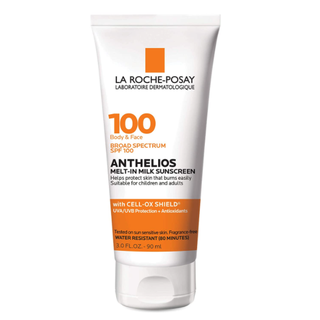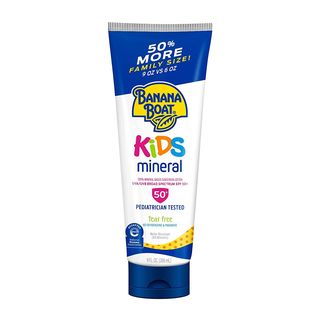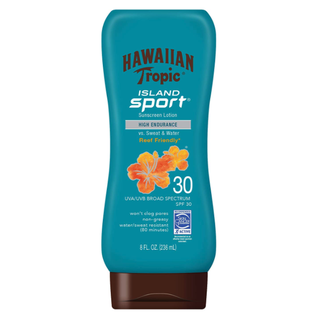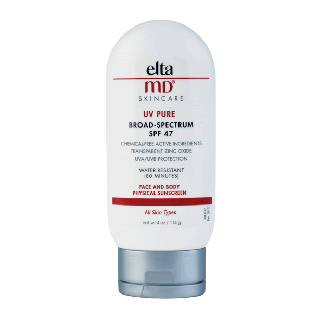- Johnson & Johnson announced a voluntary recall of several spray sunscreens that are contaminated with benzene, a known carcinogen.
- The affected brands include Neutrogena and Aveeno aerosol sunscreens.
- Experts explain why benzene can be harmful, how the contamination may have occurred, and why it’s still crucial to wear safe sunscreens this summer.
Johnson & Johnson announced a voluntary recall of several of its spray sunscreens on July 14 after low-level traces of benzene, a known carcinogen, were found in the products during internal testing.
This follows a recent bombshell report released by Valisure, a lab that regularly tests consumer products, which found benzene contamination in 78 different sunscreen and after-sun products. Affected brands included Sun Bum, Neutrogena, and CVS Health, a majority of which had spray sunscreens as the worst offenders.
Five Neutrogena and Aveeno aerosol sunscreen product lines are impacted by the voluntary recall. According to Johnson & Johnson, those include:
- Neutrogena Beach Defense aerosol sunscreen
- Neutrogena Cool Dry Sport aerosol sunscreen
- Neutrogena Invisible Daily defense aerosol sunscreen
- Neutrogena Ultra Sheer aerosol sunscreen
- Aveeno Protect + Refresh aerosol sunscreen
“Out of an abundance of caution, we are recalling all lots of these specific aerosol sunscreen products,” Johnson & Johnson said in a press release. Product images and more information on lot recalls is available on the Neutrogena and Aveeno websites.
Johnson & Johnson said that the company is still reviewing how the cancer-causing agent got into the batches. Here’s everything you need to know about benzene and sunscreen safety, according to dermatologists.
Why can benzene be harmful?
Benzene is an organic compound that’s a known carcinogen, meaning it has the potential to cause cancer, per the Centers for Disease Control and Prevention (CDC). It causes cells to malfunction, like keeping bone marrow from producing enough red blood cells, which can lead to anemia. It can also impact the immune system by changing blood levels of antibodies and damaging white blood cell counts. Long-term exposure to benzene may lead to leukemia and other blood disorders, the CDC says.
Benzene is “found in many detergents, dyes, drugs, and some skincare products,” says board-certified dermatologist Ife J. Rodney, M.D., founding director of Eternal Dermatology + Aesthetics in Maryland. “The FDA allows benzene in trace amounts,” Dr. Rodney says. “However, there are times when products exceed the stipulated limit.”
“The potential for benzene to cause problems is dependent on the amount you are exposed to at any one time, and also the total amount of benzene you are exposed to over your lifetime,” explains Jamie Alan, Pharm.D., Ph.D., associate professor of pharmacology and toxicology at Michigan State University.
But Johnson & Johnson says that it’s unlikely that the levels of benzene detected during its testing would be an issue. “Daily exposure to benzene in these aerosol sunscreen products at the levels detected in our testing would not be expected to cause adverse health consequences,” the company said in a statement.
What should you do if you have one of these sunscreens?
If you have one of the affected sunscreens above, Johnson & Johnson recommends getting rid of it and contacting the company with questions or to request a refund at 1-800-458-1673. If you have any health issues that you suspect are tied to using one of these sunscreens, contact your doctor.
Why you should still keep using sunscreen
It’s important to point out that benzene wasn’t added to these products. Johnson & Johnson didn’t reveal how the chemical got into the sunscreens, and it appears the company is still investigating those details.
However, it could have happened in the manufacturing process, Alan says. “The synthesis of many chemicals requires benzene as an intermediate,” she explains. “It would be easy to not fully purify the intended compound and have trace amount of benzene.”
Other experts believe the spray packaging could be the culprit. “The most likely theory is that benzene probably developed from a reaction caused from the propellant used to deliver the sunscreen from the bottle itself,” Joshua Zeichner, M.D., director of cosmetic and clinical research in dermatology at Mount Sinai Hospital in New York City, previously told Prevention. “While it was not initially in the formula, it was created through a chemical reaction.”
That said, if your sunscreen was not affected by this recall or noted on Valisure’s list, it’s best to keep slathering on the SPF on year-round. “It’s been shown beyond all doubt that sun exposure increases the risk of skin cancer. Sunscreen use is a must,” says Gary Goldenberg, M.D., assistant clinical professor of dermatology at the Icahn School of Medicine at Mount Sinai in New York City.
If you’re worried about any of the sunscreens you own, you can scope out consumer watchdog websites like the Environmental Working Group (EWG), which has a detailed breakdown of the ingredients and potentially harmful chemicals in a massive array of beauty products.
In need of a new sunscreen? Check out the picks below, none of which have been identified with benzene contamination:
This content is created and maintained by a third party, and imported onto this page to help users provide their email addresses. You may be able to find more information about this and similar content at piano.io




